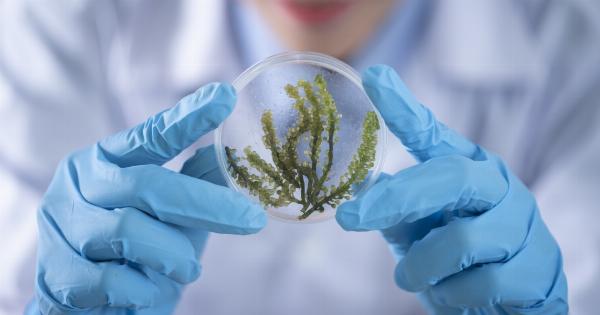Menopause is a natural biological process that marks the end of a woman’s reproductive years.
It typically occurs between the ages of 45 and 55 and is characterized by the cessation of menstruation and a decrease in hormone production, particularly estrogen. While menopause is a normal part of a woman’s life, it can bring about various physical and emotional changes.
The Connection Between Menopause and Heart Attacks
Heart disease is the leading cause of death among women, and menopause plays a significant role in increasing the risk of heart attacks in women.
Studies have shown that women who have gone through menopause have a higher risk of developing heart disease compared to younger women.
Estrogen and Heart Health
Estrogen, a hormone produced by the ovaries, has a protective effect on the cardiovascular system. It helps to improve the circulation of blood, reduces LDL (“bad”) cholesterol, and increases HDL (“good”) cholesterol.
Estrogen also helps to relax and dilate blood vessels, reducing the risk of blood clots and blockages. However, during menopause, the production of estrogen decreases significantly, which may lead to an increased risk of heart disease.
Changes in Cholesterol Levels
Menopause is often accompanied by changes in cholesterol levels. The decrease in estrogen levels can lead to an increase in LDL cholesterol and a decrease in HDL cholesterol.
This alteration in cholesterol levels can contribute to the development of plaque buildup in the arteries, increasing the risk of heart attacks and strokes.
Impact of Menopause on Blood Vessels
Estrogen has a positive effect on the health and elasticity of blood vessels. It helps to keep the arteries flexible and promotes the production of nitric oxide, which helps in maintaining normal blood pressure.
However, the decline in estrogen levels during menopause can lead to a decrease in nitric oxide production and arterial stiffness, which increases the risk of cardiovascular problems.
Changes in Metabolism and Weight Gain
Menopause is often associated with changes in metabolism and a tendency to gain weight, particularly around the abdomen.
This weight gain, combined with hormonal changes and the redistribution of fat from the hips and thighs to the abdominal region, can further increase the risk of heart disease and heart attacks.
Effects of Hormone Replacement Therapy (HRT)
Hormone replacement therapy (HRT) is a treatment option for managing menopausal symptoms by replenishing estrogen levels. While HRT can relieve vasomotor symptoms such as hot flashes and night sweats, its impact on heart health is complex.
The Women’s Health Initiative study found that combined HRT (estrogen and progestin) increased the risk of heart attacks, stroke, and blood clots in postmenopausal women. However, estrogen-only therapy did not show the same risks and even had possible cardiovascular benefits. It is crucial to discuss the risks and benefits of HRT with a healthcare professional.
Other Factors Contributing to Heart Disease Risk
Alongside menopause, several other factors can contribute to the risk of heart disease and heart attacks. These include:.
- Age: The risk of heart disease increases with age.
- Family history: Having a family history of heart disease can elevate the risk.
- Smoking: Smoking is a significant risk factor for heart disease.
- High blood pressure: Uncontrolled high blood pressure increases the risk.
- High cholesterol: Elevated cholesterol levels contribute to plaque formation in arteries.
- Obesity: Being overweight or obese puts extra strain on the heart.
- Inactivity: Leading a sedentary lifestyle raises the risk of heart disease.
- Diabetes: Diabetes increases the likelihood of developing cardiovascular problems.
- Stress and mental health: High levels of stress and certain mental health conditions may impact heart health.
Preventive Measures for Heart Health During Menopause
Although menopause increases the risk of heart attacks, there are several preventive measures women can take to promote heart health:.
1. Healthy Diet
A heart-healthy diet can significantly reduce the risk of heart disease. It is important to consume low-fat, high-fiber foods such as fruits, vegetables, whole grains, and lean proteins.
Limiting saturated fats, salt, and added sugars is also crucial for maintaining heart health during menopause.
2. Regular Exercise
Engaging in regular physical activity is essential for maintaining cardiovascular health. Aim for at least 150 minutes of moderate-intensity aerobic exercise per week, along with strength training exercises at least twice a week.
Exercise helps to improve blood circulation, maintain a healthy weight, and manage stress.
3. Quit Smoking
Smoking is a major risk factor for heart disease. Quitting smoking can significantly reduce the risk of heart attacks and other cardiovascular problems.
Seek support from healthcare professionals, counseling services, or smoking cessation programs to quit smoking successfully.
4. Manage Stress Levels
Chronic stress can negatively impact heart health. Finding effective stress management techniques such as meditation, deep breathing exercises, yoga, or engaging in hobbies can help reduce stress levels and protect heart health.
5. Regular Health Check-ups
Regular check-ups and screenings are crucial for identifying and managing any potential risk factors for heart disease. Monitor blood pressure, cholesterol levels, and blood sugar regularly.
Discuss concerns and symptoms with a healthcare professional to ensure early detection and appropriate management.
Conclusion
Menopause is a natural stage in a woman’s life that can increase the risk of heart disease and heart attacks.
The decline in estrogen levels, changes in cholesterol, weight gain, and other factors during menopause contribute to this increased risk.
However, with proper lifestyle modifications, including a healthy diet, regular exercise, stress management, and regular health check-ups, women can take proactive steps to protect their heart health during menopause and reduce the risk of heart attacks.






























